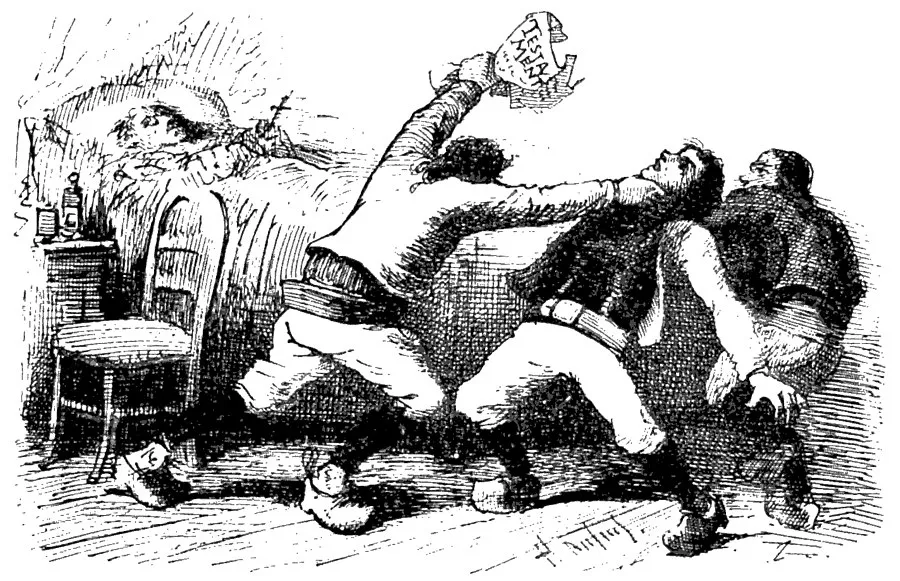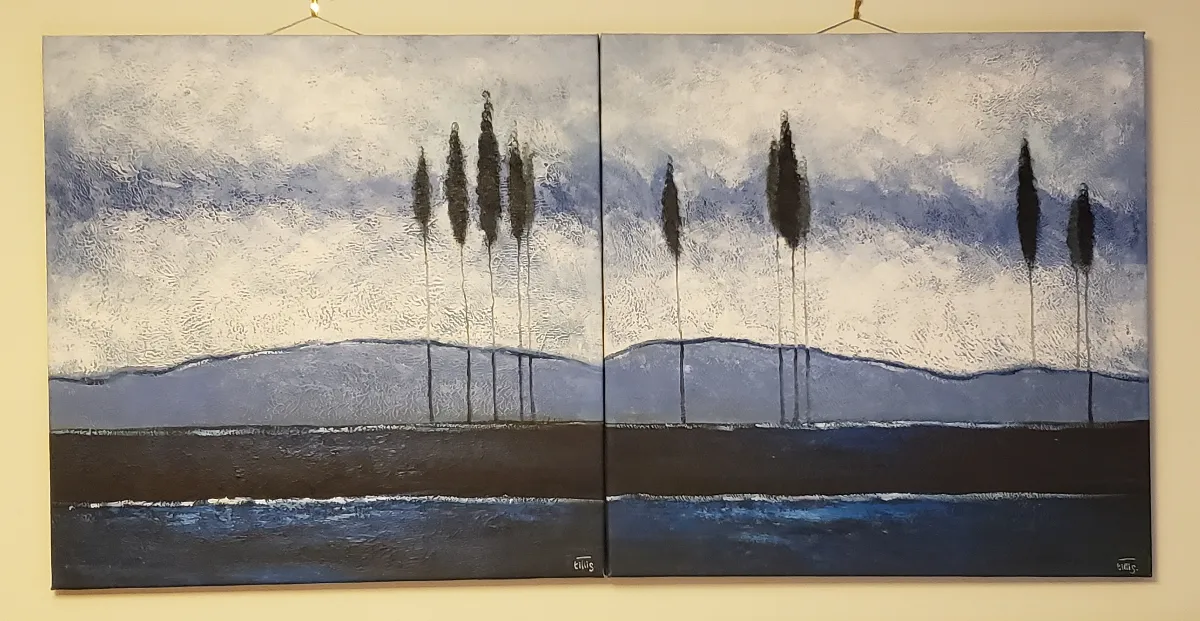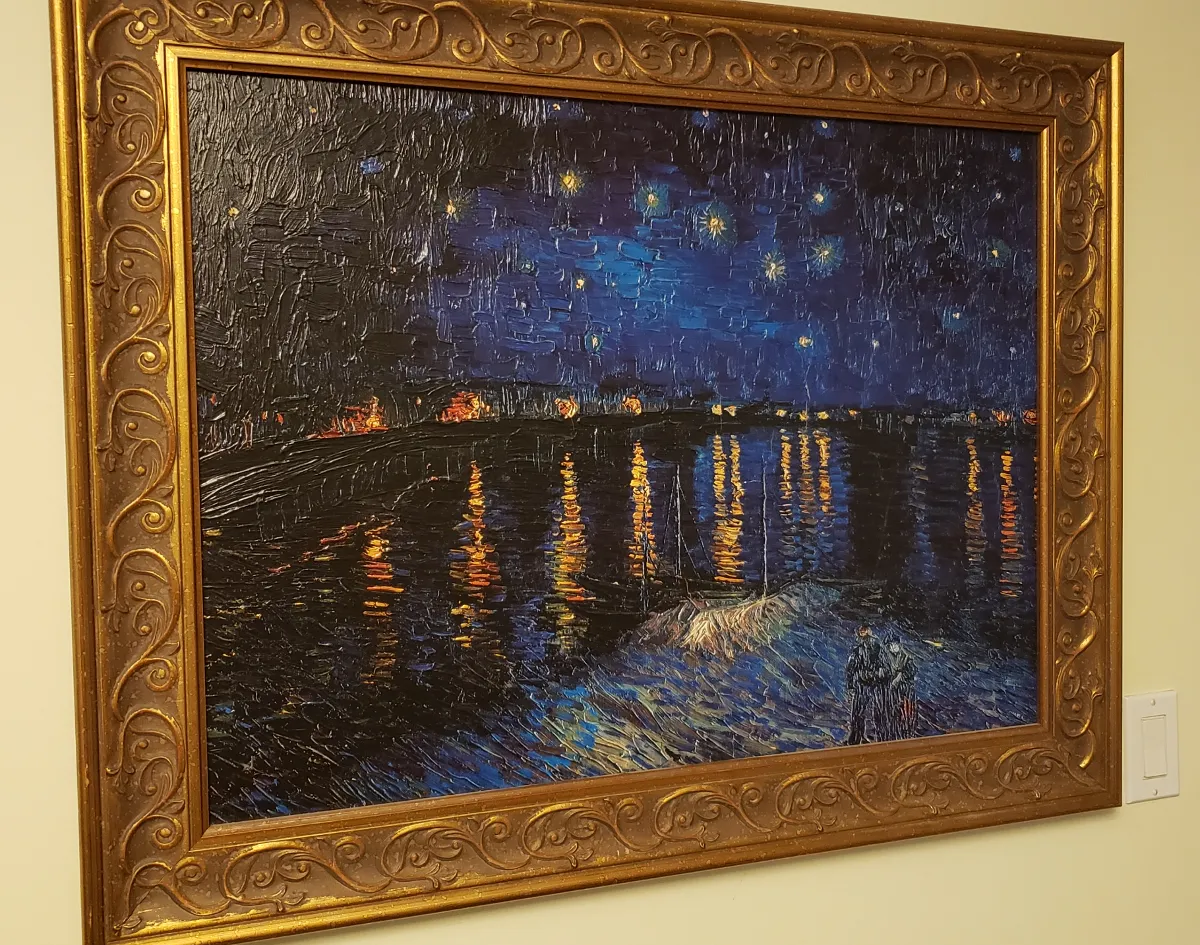THE RECTEUR'S TESTAMENT
In Brittany the main priest in a parish is called the "recteur", not the "curé" as in most regions of France.

The cousins arguing
Source
There was once an old recteur in the town of Baden, who apparently lasted too long, according to the wishes of his heirs. They were three second-cousins: Gurh, the eldest and most miserly of the three, came twice a year from Pont-Scorff, where he lived, to Baden to judge for himself the state of the recteur. You can well imagine that the man was not pleased to see his greedy cousin rummaging in every corner of the presbytery and taking inventory in advance of his poor furniture. Scoull, another cousin, was not much better; so much so that the recteur, guessing with whom his soul would have to deal after his death to obtain prayers, and deceived moreover by some marks of friendship shown to him by Hervis, the youngest of his heirs, resolved to give all his property to this one, who lived at Larmor-Baden. He therefore made his will in this way and entrusted it to Hervis, begging him to use half of his small inheritance both to have masses sung for the rest of his soul and to relieve the poor of the parish. The cousin promised, and the old priest died shortly after.
Gurh and Scoull quickly arrived at the presbytery; but the other, armed with the will which was in good form, did not hesitate to throw them out. There was a battle, it is said, between the three rascals; Hervis even lost an eye, but he kept all the recteur's property, and to compensate for the eye he no longer had, he judged it appropriate to eliminate the masses he had promised and the alms he owed to the poor.
One evening when Jeanne, the young daughter of Hervis, was bringing back to the village his cattle which she had looked after all day on the moors of Lok-mikel, suddenly she saw a priest get up behind a large menhir, advance between her and her flock and make her turn back. Then this strange shepherd, whose long black cassock fluttered in the wind, led the animals to the sea where they began to swim and he followed them on the waves.
The girl came home alone and she was scared. Trembling, she recounted her adventure to her father, who left his house furious, and ran all night across the moors where he could find neither oxen nor cows. The following day Hervis the one-eyed learned that there were cattle on the island of Gavrinis whose owner was not known; he immediately went there, and after having gathered his flock (because it was indeed his own, that is to say, that which he had from the late recteur), he embarked them in a large boat and returned safely to Armor-Baden. There, he locked the animals in the stable, promising himself not to lose sight of them all year round.
Source: Le Testament du Recteur from the French book Contes et légendes de Basse-Bretagne published in 1891.
Previous Tale: The Stones of Plouhinec
Hello, my name is Vincent Celier.

I am writing translations of folk tales that I found in public domain French books, so that people who do not understand French may enjoy them too.

This is a shorter tale. There are bad men, a priest, living then dead.
The recteur made a mistake: he should have given his wealth to somebody he trusted, instead of giving it to only one of his second cousins.

Yesterday afternoon, we went to my house in Harrison Hot Springs. We thought we would find my grandson Nathaneil there, but it turns out he will arrive tomorrow night.
Kati walked up early this morning and left with her car to Calgary around 5 AM. It will take her more than 10 hours to drive the 900 km from here to her son Péter's house.
Here are the paintings in our bedroom in Harrison Hot Springs.

I bought this pair of paintings that go together in 2007 on the Internet. It is another landscape, less realistic than those in our apartment in Coquitlam.

This is a reproduction of a painting by Vincent van Gogh: La Nuit étoilée (1888) known in English as Starry Night Over the Rhône. This was given to me several years ago as a birthday gift by Péter, the eldest son of Kati.
-- Vincent Celier